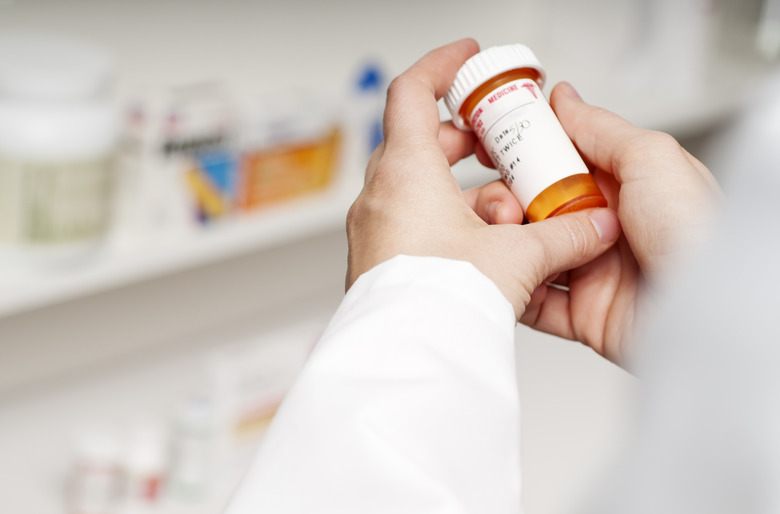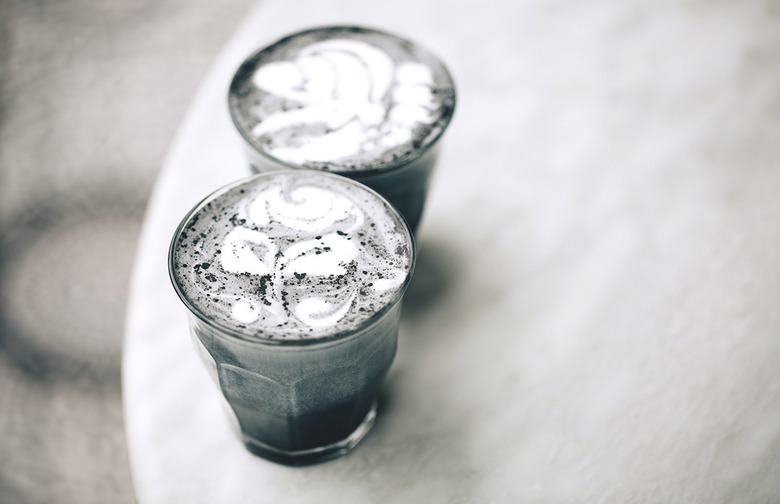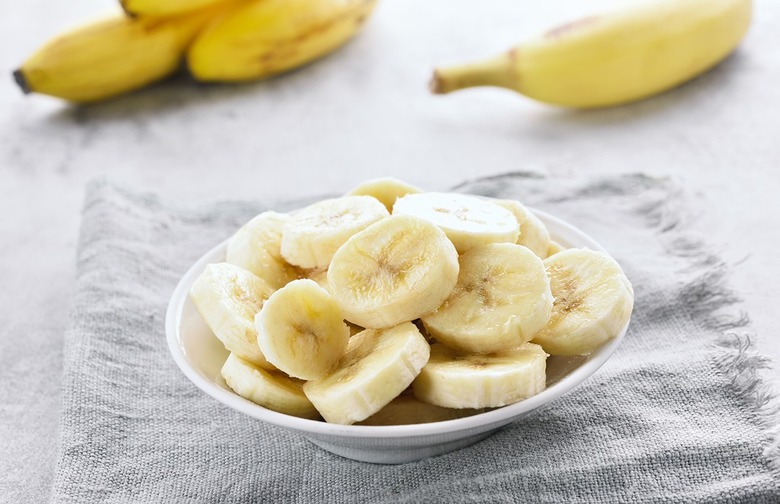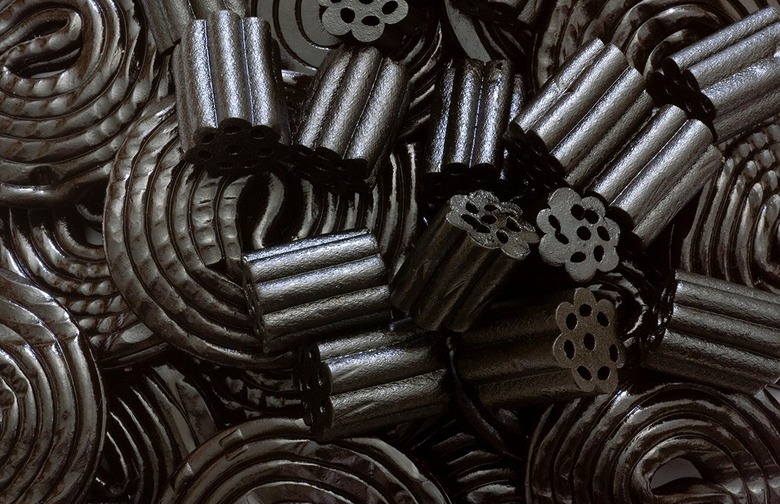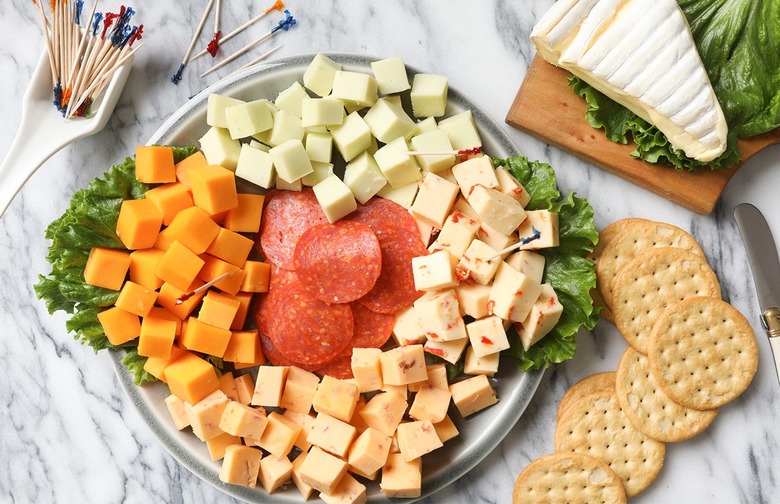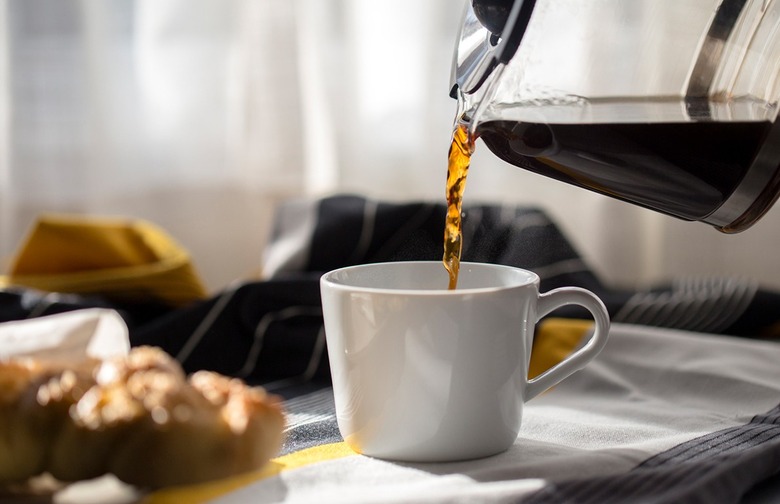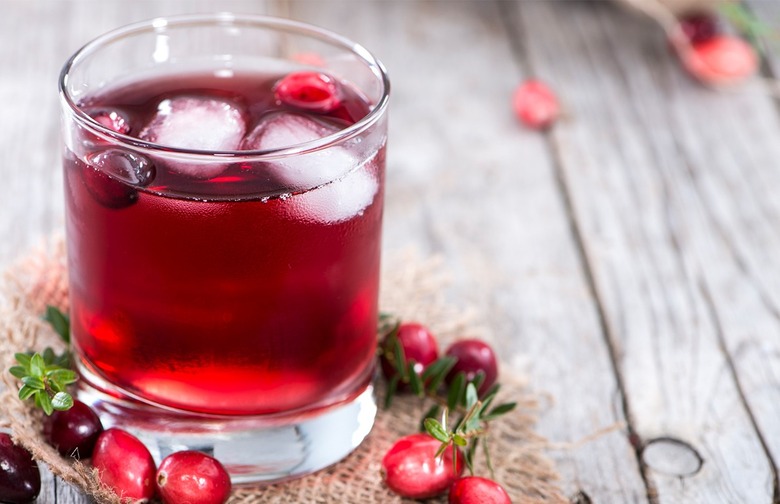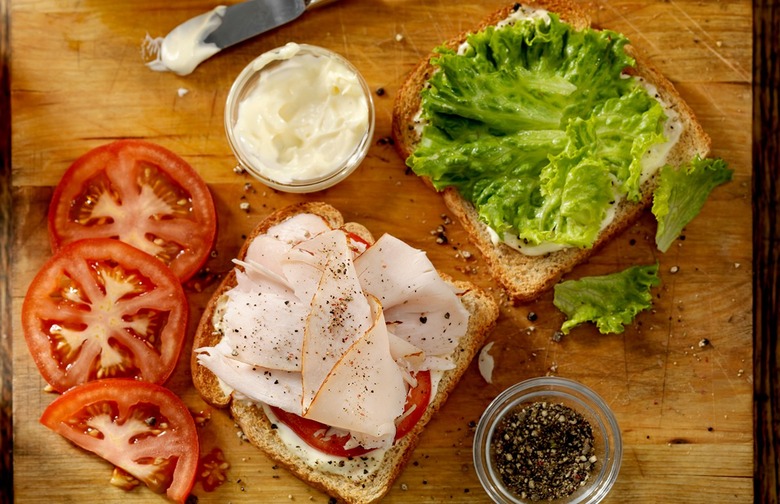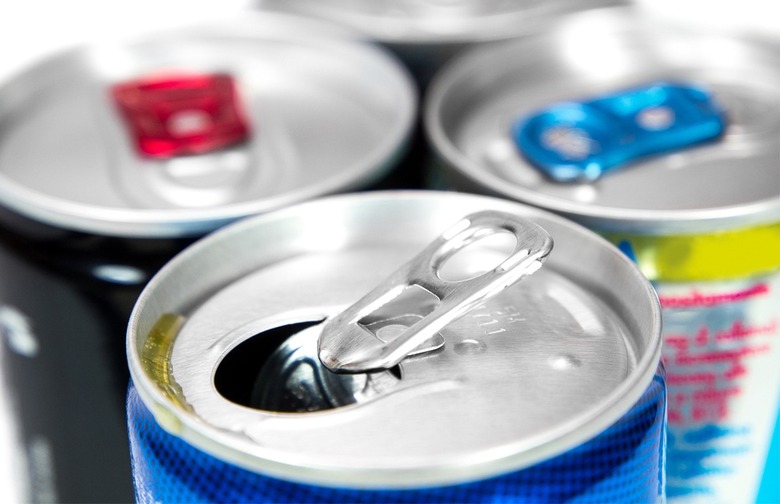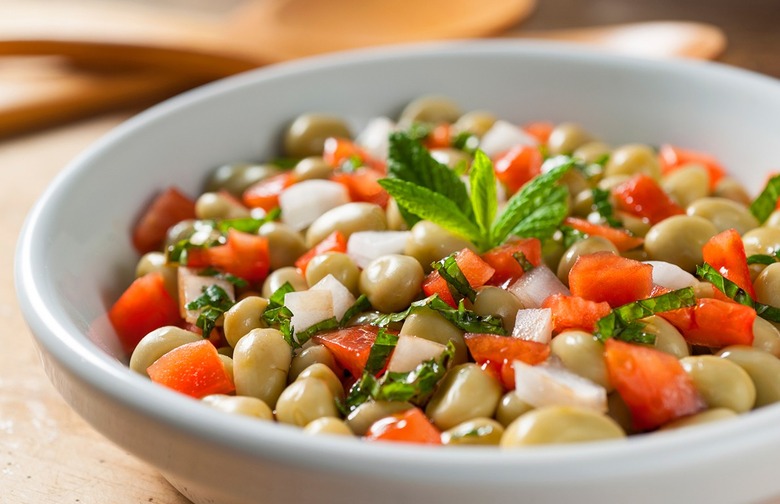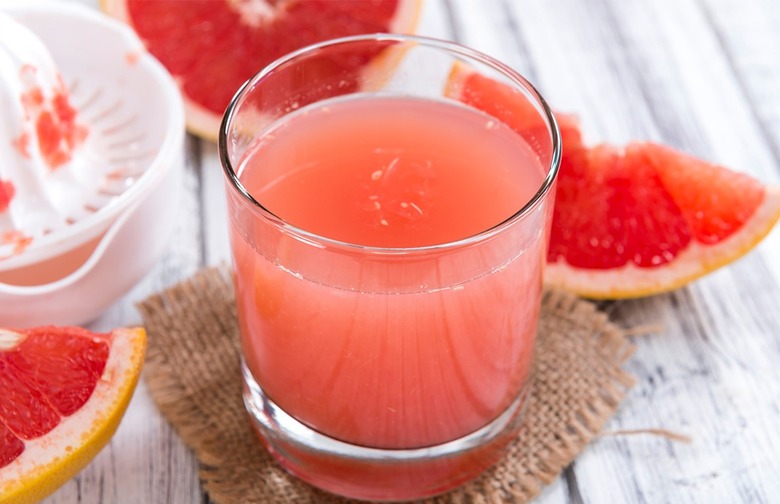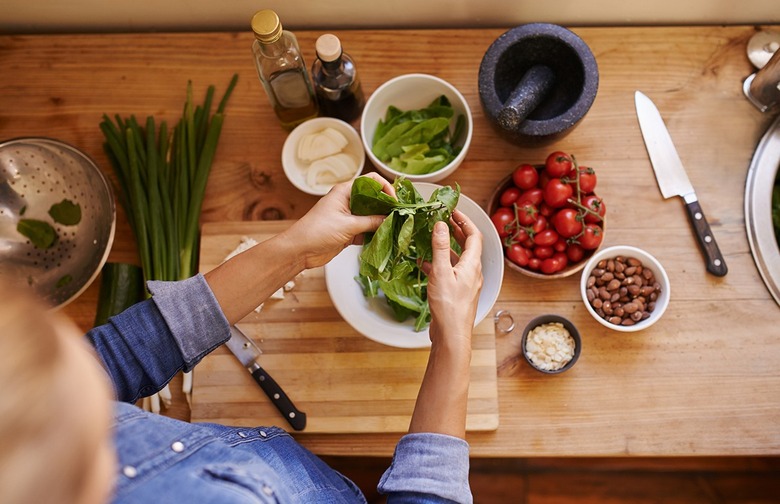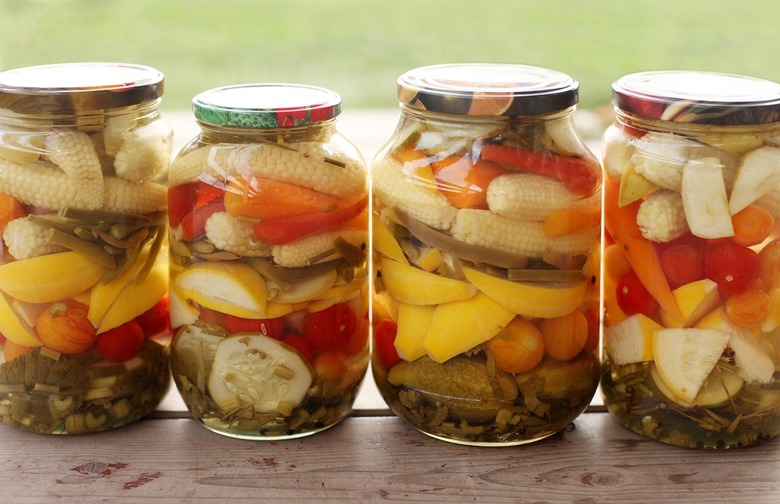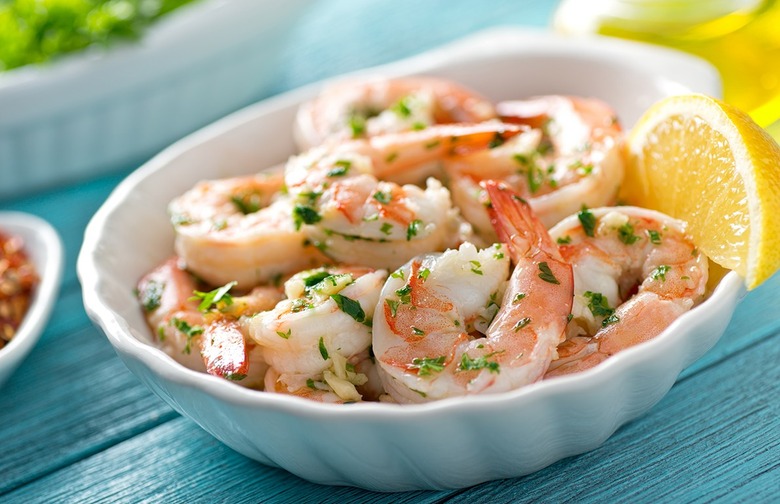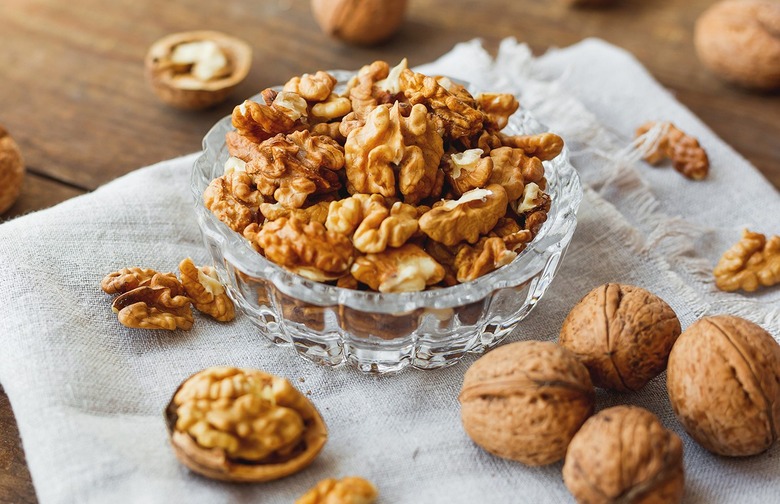These Foods Can Mess With Your Medication Gallery
Most foods can be safely eaten with medications. In almost every case, maintaining a healthy and varied diet is best to support your overall health, whether or not any medication is involved. But some drugs — specifically those that are ingested — can be impacted by the presence of certain foods and drinks.
These interferences could be minor. Some foods might impact the way a medicine is absorbed, for example. But many of these food and drug interactions are serious. Certain medications could have dangerous and even life-threatening side effects if they are paired with the wrong foods. Other medications might not be absorbed at all if certain compounds found in food are involved, putting the person prescribed in danger as a result.
You should always ask your doctor about precautions you should take while being prescribed any new medication. Avoiding certain foods, altering your lifestyle habits, or taking other precautions might be necessary to avoid undesirable side effects. But it couldn't hurt to know which foods might have an effect beforehand. These are some of the more common food and drug interactions you should be aware of.
Activated Charcoal
This powdered compound has been used in everything from cheese to fried chicken, turning foods jet-black with its intense color. Some people eat it in foods while others will take a daily pill. But activated charcoal, however trendy, should be consumed with caution. Activated charcoal is highly absorbent, which is why it's used as a "cleansing" agent for those looking to detox their diet or skin. But the charcoal doesn't discriminate which compounds it absorbs — so if you consume charcoal alongside medications, it's suspected that some of the medication will be soaked up by the charcoal before it can be digested by your body. Some studies have shown that activated charcoal could decrease the effectiveness of oral contraceptives.
Alcohol
The way medication works can be changed significantly when you factor in alcohol — whether you drink before, after, or alongside your medication. This is largely because alcohol affects your digestion, your circulation, and your brain function. Many medications, including some over-the-counter medicines, are affected when you drink. Check the label for any warnings against pairing the two substances and ask your doctor when you are prescribed anything to make sure you don't put your health in danger.
Bananas
Angiotensin-converting enzyme inhibitors (ACE inhibitors) are often prescribed to treat hypertension and heart failure. But patients prescribed these medications need to be careful not to pair them with too much potassium. ACE inhibitors can increase the amount of potassium in your body; if your potassium levels grow too high, you can put your heart health at risk. Bananas have large amounts of potassium compared to most other foods — so while eating one could actually be good for your blood pressure, avoid overeating these fruits if you're on this type of medication.
Black Licorice
Digoxin is a medication used primarily to help patients with heart failure. This medicine is enhanced when the body is depleted of potassium, which can cause irregular heartbeat and other complications. A natural compound used to make some forms of black licorice called glycyrrhiza can increase the body's sodium retention and decrease the prevalence of potassium in the blood. Black licorice definitely isn't everyone's favorite candy. But if it's yours and you take this medication, make sure you limit your consumption.
Cheese
While it's probably not a great idea to eat greasier, more indulgent cheesy dishes every day, satisfying your craving with a square or two of high-quality cheese could be really good for you. Cheese has nutrients and health benefits, including lowering your risk of heart-related diseases and stroke. However, cheese has a large amount of tyramine, an amino acid that can cause a dangerous spike in blood pressure when the body has too much of it. Certain antibacterial medications and antidepressants can suppress the breakdown of tyramine, increasing the concentration in the blood. This increase in concentration can put people at a greater risk for hypertension.
Chocolate
Chocolate also has a high concentration of tyramine. While dark chocolate has many health benefits, it shouldn't be eaten in excess — especially alongside certain medications.
Coffee
Coffee is a natural source of caffeine that is also quite good for you. However, caffeine is a drug and can interfere with certain medications in your body. Bronchodilators, antibiotics, some antidepressants, and antipsychotics are just some of the medications that shouldn't be paired with too much caffeine. The reason for danger varies with each medication — caffeine can increase the risk of side effects, put your blood pressure at risk, or increase the effect of certain drugs.
Cranberry Juice
If you're taking a blood thinner, it's important you don't drink too much cranberry juice or consume other cranberry products. The compounds in these foods can interfere with the way blood thinning medication such as warfarin acts in your body.
Deli Meats
Some deli meats, often processed and high in nitrates, contain relatively large amounts of tyramine. Since tyramine can put you at risk for high blood pressure, you want to avoid eating these foods in excess while taking a medication that can mess with how your body processes the amino acid. This isn't the only reason to be cautious about processed meats, though. There are other risks associated with these foods, as well.
Energy Drinks
High levels of caffeine can be dangerous alongside medications such as antibiotics or certain antidepressants. Make sure you don't overdo it on energy drinks when you're taking these medications — though you might not want to drink them regardless.
Fava Beans
Fava beans, also called broad beans, are an excellent source of fiber, as well as many vitamins and minerals. But don't eat too many alongside medications such as antibiotics, antipsychotics, and some antidepressants. They have a relatively high concentration of tyramine. Talk to your doctor about whether your medications and tyramine interfere.
Fermented Foods
Tyramine is often present in fermented foods, as well. These include kimchi, sauerkraut, kefir, and kombucha, among other gut-healthy foods. The probiotics in these items can be healthy, but just be sure to check with your doctor about whether there is a risk.
Grapefruit Juice
Grapefruit can interfere with a couple types of drugs. Statins, a type of cholesterol-lowering medication, can show an increase in activity when paired with grapefruit. This could lead to worsened side effects, including muscle soreness and liver abnormalities. Calcium channel blockers, prescribed to patients with high blood pressure, can also react to grapefruit juice. The fruit can increase the concentration of the medication in the blood, leading to worsened side effects.
Leafy Greens
Leafy greens such as kale, spinach, and other vegetables are high in vitamin K — a quality that makes them healthier for you, but that can be problematic once you factor in certain medications. Blood thinners such as warfarin should not be paired with an excess of these vegetables. Doing so could lead to a decreased effectiveness of the medication and put patients at risk for blood clotting.
Pickled Foods
Pickled vegetables, including pickles themselves, might contain tyramine — the same compound found in cheese, chocolate, and other foods that can interfere with your medication. A pickle on the side of your burger order will probably not do too much damage. But maybe refrain from eating them right from the jar when a craving strikes.
Seafood
Seafood and seaweed both contain high levels of iodine, a mineral that's essential for healthy thyroid function. However, if you're taking medication for hyperthyroidism, you may be on an antithyroid drug, which prevents iodine from being absorbed in the body. Eating too much iodine might require a higher dose of your medication.
Walnuts
If you're taking levothyroxine sodium, a type of thyroid medication, be aware that walnuts might interfere with your absorption of the medication. If you're not taking this medicine, though, it's probably a really good idea to add walnuts to your diet. According to neurologists, they're really good for your brain health — as are these other healthy foods.
More From The Daily Meal:
17 Foods Every Man Should Eat at Least Once a Week
Surprising Reasons You Should Eat More Fat
19 Chemicals You Didn't Know Were in Your Food
50 Foods That Lower Your Risk of Cancer
Diet Advice You Need to Forget When You Turn 40
